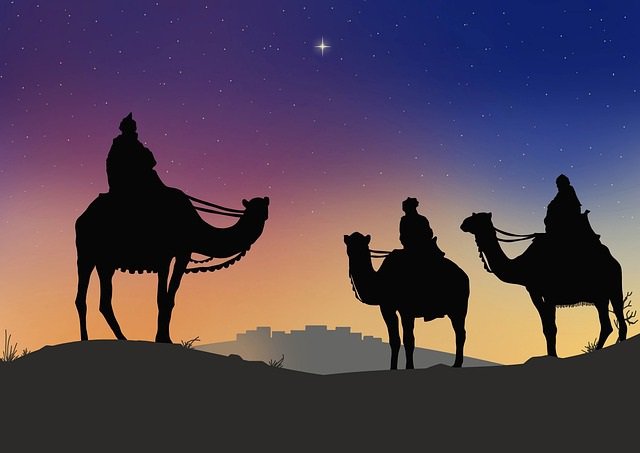Pause for thought: Epiphany – A Time to Render Devotion to the Christ-Child

Epiphany – A Time to Render Devotion to the Christ-Child
We have just celebrated Epiphany, the feast that recalls the arrival of the magi, twelve days after the birth of the Christ child, told only in Matthew’s Gospel. As we know the magi present gifts of gold, frankincense, and myrrh. In the nativity plays, children are most eager to present the baby Jesus with the gift of gold with little interest being shown in the frankincense and myrrh. However, Christians have long attributed important symbolic meaning to all three of the gifts. The gifts reveal the identity and vocation of the Christ child. Jesus’ identity as both king and God is revealed by gold and frankincense, and his vocation to suffer and die is revealed through the gift of embalming ointment myrrh. As in the words of the well-known carol: “gold I bring to crown him a king”, “incense owns a deity nigh”, and “myrrh breathes a life of gathering doom, sorrowing, sighing, bleeding, dying, sealed in a stone-cold tomb.” The author of Matthew’s Gospel draws on the words of Isaiah. The prophet writes that “all will come from Sheba, bearing gold and frankincense” to render praise to the Lord (Isaiah 60:6). Matthew appears to pick up on this imagery but includes the ominous gift of myrrh. He presents Jesus as one born to be Lord and king as well as one born to die. The prophet Isaiah also speaks more widely of a light arising on all people, and kings being drawn to its brightness. It speaks of non-Jewish, or gentile nations being drawn to the worship of the Lord (Isaiah 60:1-7).
Matthew’s vision of the Christ child is that all people might find their hope and salvation in him. Epiphany celebrates not just the giving of gifts to the Christ child, but his inestimable gift to us. Through the gift of his life itself, he draws all the nations into a relationship with God by which they can be made anew in him. It is only then that people are able to offer the gift of pure devotion to the one who at his epiphany is revealed to be the babe of Bethlehem, the Christ of Calvary, and the Lord of life for all the nations.
Dr Elizabeth Corsar